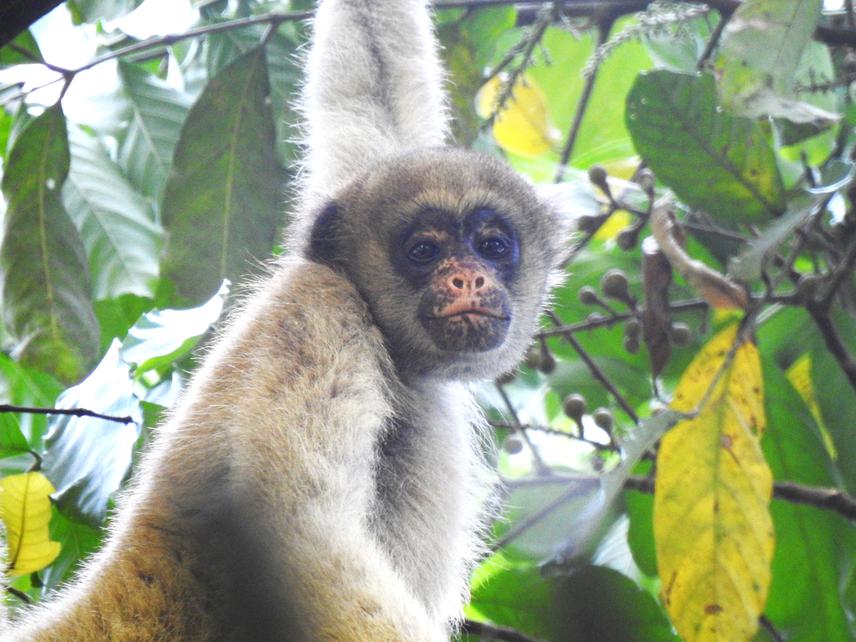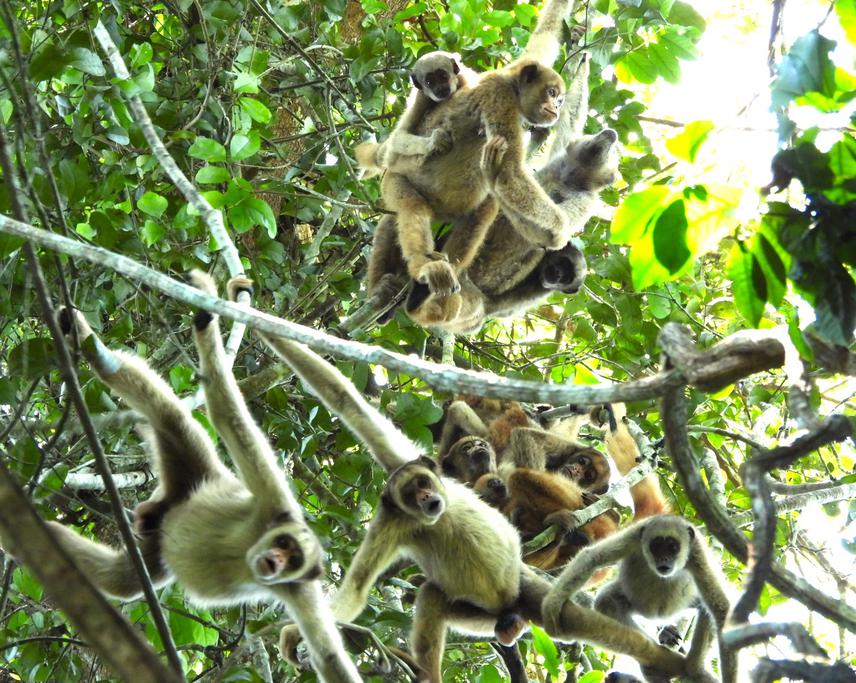Vanessa de Paula Guimarães Lopes
Other projects
28 May 2020
Ecology, Conservation and Interference of the Exotic Species to Callithrix aurita, One of the World's 25 Most Endangered Primates
The northern muriqui (Brachyteles hypoxanthus) is known as the largest endemic mammal in Brazil, the largest monkey in the Americas, and has a society characterized by harmony, which makes it possible to relate its image as a flagship species of the Atlantic Forest. However, considering the critical threat of extinction of the northern muriqui, due mainly as a result of the impact caused by habitat destruction and fragmentation, together with low population density, the slow rate of reproduction, coupled with the migration of females, especially in isolated forests that make it difficult for viable populations to continue, reinforce arguments regarding the need to conserve the species. Muriquis play a unique and important role in ecosystems, as they are excellent seed dispersers, therefore we can consider them as an umbrella species, as they favor the conservation of the landscape, ensuring the integrity and connectivity of the forest areas in which they reside. In addition, this primate will contribute to the conservation of other species present at the site.

Northern muriqui in Rio Doce State Park. ©Vanessa Guimarães.
However, few studies have been carried out on the species in Rio Doce State Park in Brazil, indicating the need for research to evaluate its current occurrence and distribution, the local population size, and characterize the main threats to the conservation of this primate. This project will cover the Brazilian priority actions of the PAN PPMA (National Action Plan for Conservation of Primates and the Maned Sloth in the Atlantic Forest of Brazil), such as evaluating the demography and genetics of the remaining groups of northern muriquis and evaluating their conservation status in the Rio Doce State Park, aiming for its protection and scientific and popular knowledge. As well as using citizen science and local income generation to protect this species in the long term, making it a symbol of local conservation. The data obtained in this project will be used to develop and implement conservation strategies for the largest primate in the Americas and endemic to the Atlantic Forest in Brazil. Furthermore, this project will contribute to the preservation of the largest area of the Atlantic Forest in Minas Gerais/Brazil, considering the importance of this area, due to its Atlantic Forest extension and one of the few places where endangered primate species occur.

Group of northern muriqui in Rio Doce State Park. ©Primatas PERDidos/Júnior Cabral.
Header: Northern muriqui female and her baby in Rio Doce State Park. ©Vanessa Guimarães.